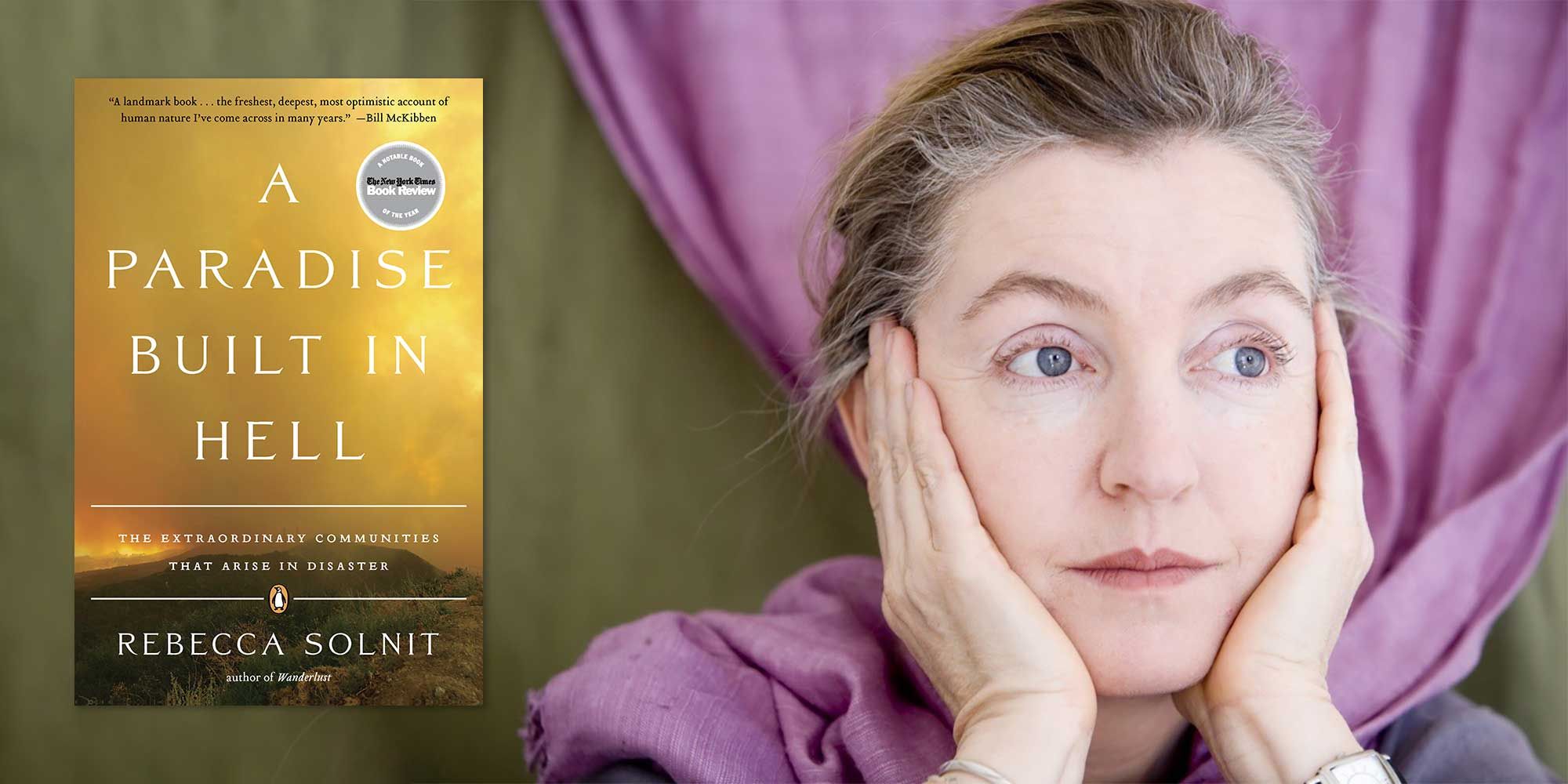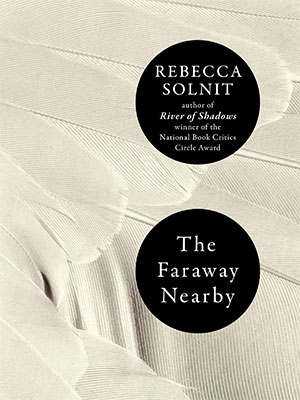

As in her previous works - most notably “River of Shadows,” a study of the photographer Eadweard Muybridge that opens out into a consideration of time, motion and the American West - there is here a wonderful confluence of unexpected connections. Solnit is an exemplar of that perpetually endangered species, the free-ranging public intellectual, bound to no institution or academic orthodoxy.

As the prevailing order - which she elliptically characterizes as advanced global capitalism, full of anomie and isolation - collapses, another order takes shape: “In its place appears a reversion to improvised, collaborative, cooperative and local society.” These “disaster communities” represent something akin to the role William James claimed for “the utopian dreams” of social justice: “They help to break the general reign of hardness, and are slow leavens of a better order.” “Disasters are extraordinarily generative,” she writes. Disasters, for Solnit, do not merely put us in view of apocalypse, but provide glimpses of utopia. But ask any New Yorker about, say, the blackout of 2003, and you’re likely to get not a shudder of horror but wistful reminiscences about people spontaneously directing traffic when the signals went dark.Īs Rebecca Solnit documents in “A Paradise Built in Hell,” a landmark work that gives an impassioned challenge to the social meaning of disasters, this same sort of positive feeling has emerged in far more precarious circumstances, from the San Francisco earthquake of 1906 to Hurricane Katrina. Given the normal travails of city life, one might reasonably expect the social fabric to rend. Kerouac was, in essence, asking a favorite question of social psychologists: Under what conditions are people willing to help others? Urbanites, or the social dynamics of urbanism, have been particularly implicated in these inquiries, whether by “diffusion of responsibility” - the more people who are around, the less any one person feels compelled to act - or “information overload,” the idea that city people must filter and limit what they take in, including appeals for help.īut every so often comes a moment when the normal rules of life are suspended, when some kind of force brings suffering, deprivation or, at the very least, extreme inconvenience. “Men work against each other only when it is safe to abandon men - only when and where.” From a nearby town came “crews of eager young men” who “pitched in” through the “attritive, swirling, arctic-like night.” Kerouac was struck by their selflessness, their willingness to help strangers of whom they had “no need.” “Where in the effete-thinking East,” he wrote, “would men work for others, for nothing, at midnight in howling freezing gales?” He concluded with a koan of sorts.

In his journals, Jack Kerouac recalled riding on a bus through North Dakota in 1949, when snow and ice brought the highway to a halt.


 0 kommentar(er)
0 kommentar(er)
